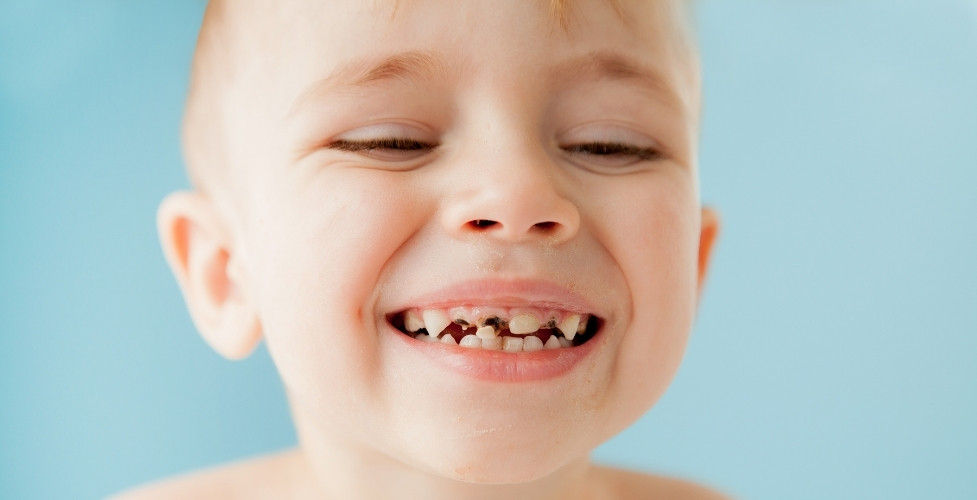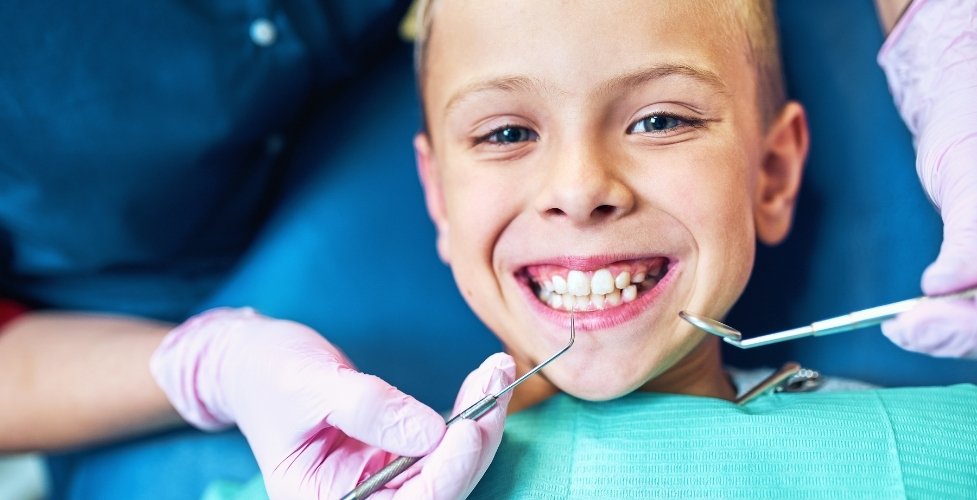3609 Jamison Way Castro Valley, CA 94546

Dental health plays a crucial role in children’s overall development and self-esteem. A healthy smile can boost confidence, helping kids interact freely with their peers. Unfortunately, dental problems can lead to insecurity and anxiety. Children who suffer from oral issues may feel embarrassed, leading to social withdrawal. Here comes the role of pediatric dentistry.
This blog explores how pediatric dentistry addresses these challenges. It will discuss the importance of dental health, common dental problems, and how pediatric dentists help children build self-confidence. By understanding these aspects, parents can support their children in achieving not only good oral health but also a positive self-image.
Understanding Pediatric Dentistry
Pediatric dentistry focuses on the oral health of children from infancy through young adulthood. Pediatric dentists undergo additional training beyond dental school to specialize in this field. They understand the unique dental needs of children and how to meet them effectively. Unlike general dentists, pediatric dentists create a child-friendly environment. Their offices are designed to be welcoming and fun, using colors, toys, and games to ease anxiety.
Additionally, pediatric dentists are trained in child psychology. This knowledge helps them communicate effectively with young patients, ensuring they feel comfortable during visits. They also address developmental concerns and promote good dental habits.
By focusing specifically on children’s dental needs, pediatric dentists play a vital role in fostering healthy habits and positive experiences at the dentist.
The Connection Between Oral Health and Self-Confidence
Oral health directly impacts a child’s self-image and confidence. When children have healthy teeth, they feel more comfortable smiling and engaging with others. In contrast, dental problems like cavities or misaligned teeth can lead to feelings of embarrassment.
According to the American Academy of Pediatric Dentistry, 80% of children with untreated dental decay experience lower self-esteem. A study published in the Journal of Clinical Pediatric Dentistry found that children with poor oral health are more likely to be bullied.
Furthermore, research shows that dental anxiety can affect nearly 60% of children. This anxiety often stems from negative experiences or fear of pain.
By addressing dental issues early, pediatric dentists help children avoid long-term impacts on their confidence. A healthy smile fosters social interactions, enabling children to build friendships and participate in activities without fear of judgment.
Common Dental Issues in Children
Children often face various dental problems that can affect their confidence, including:
- Cavities: Caused by tooth decay, cavities can lead to pain and visible holes in teeth.
- Misalignment: Crooked or crowded teeth can affect a child’s ability to smile and speak clearly.
- Thumb Sucking: This common habit can alter the shape of the mouth, affecting tooth alignment if it continues.
- Early Tooth Loss: Losing baby teeth too soon can impact speech development and lead to the misalignment of permanent teeth.
- Dental Anxiety: Fear of dental visits can prevent children from seeking necessary care.
These issues can make children feel self-conscious in social situations. They may avoid smiling or participating in activities, which can impact their ability to make friends and enjoy their childhood.
The Role of Pediatric Dentists in Boosting Confidence
Pediatric dentists play a vital role in creating positive dental experiences for children. They design their offices to be welcoming and child-friendly. Bright colors, fun decorations, and interactive elements help reduce anxiety. Pediatric dentists also focus on effective communication. They explain procedures in simple terms, making it easier for kids to understand what to expect. This clarity helps alleviate fears and build trust.
In addition, pediatric dentists employ various strategies to ease anxiety. They use distraction techniques, such as toys or games, during procedures, which helps keep children calm and engaged. They often involve parents in the process, providing guidance on how to support their children.
Establishing rapport with both children and parents is crucial. This connection helps pediatric dentists create a supportive environment that encourages children to express their concerns.
Moreover, pediatric dentists are trained to handle anxious children with care. They can use positive reinforcement to encourage cooperation.
In some cases, they may offer sedation options to ensure a stress-free experience. By making dental visits enjoyable, pediatric dentists empower children to take charge of their oral health. This confidence translates into improved self-esteem and social interactions.
Preventive Care and Education
Preventive dental care is essential for maintaining children’s oral health and self-confidence. Pediatric dentists emphasize the importance of regular check-ups and cleanings. These visits help detect potential issues before they escalate.
Additionally, pediatric dentists educate both children and parents about proper dental hygiene practices. They teach kids how to brush and floss effectively in a fun way.
Routine dental visits also promote early detection and management of dental problems. When children understand the importance of dental health, they become more proactive in caring for their teeth.
This proactive approach fosters a sense of responsibility, enhancing their confidence in their ability to maintain good oral health. By encouraging healthy habits and addressing issues early, pediatric dentists play a crucial role in fostering a positive self-image in children.
Tips for Parents
Here are some actionable tips for parents to help their children maintain good oral health and ease dental anxiety:
- Start Early: Schedule dental visits by age one to promote positive experiences.
- Make it Fun: Use games or apps to teach kids about dental care.
- Role-Play: Act out dental visits at home to familiarize children with the process.
- Read Books: Choose children’s books that explain dental visits in a fun way.
- Positive Reinforcement: Praise children for good dental hygiene habits.
- Stay Calm: Remain calm during visits; children can sense your anxiety.
- Involve Them: Let kids choose their toothbrush and toothpaste flavors.
By implementing these strategies, parents can create a supportive environment that fosters good oral health and self-confidence.
In conclusion, pediatric dentistry plays a crucial role in building self-confidence in children. By addressing dental issues and providing positive experiences, pediatric dentists help children develop healthy habits and overcome fears. Educating both children and parents about oral hygiene is essential for long-term success.
A healthy smile can significantly impact a child’s self-esteem and social interactions. Parents should prioritize their children’s dental health as a vital component of overall well-being. By supporting their children in this journey, parents can help them grow into confident individuals with bright, healthy smiles.






